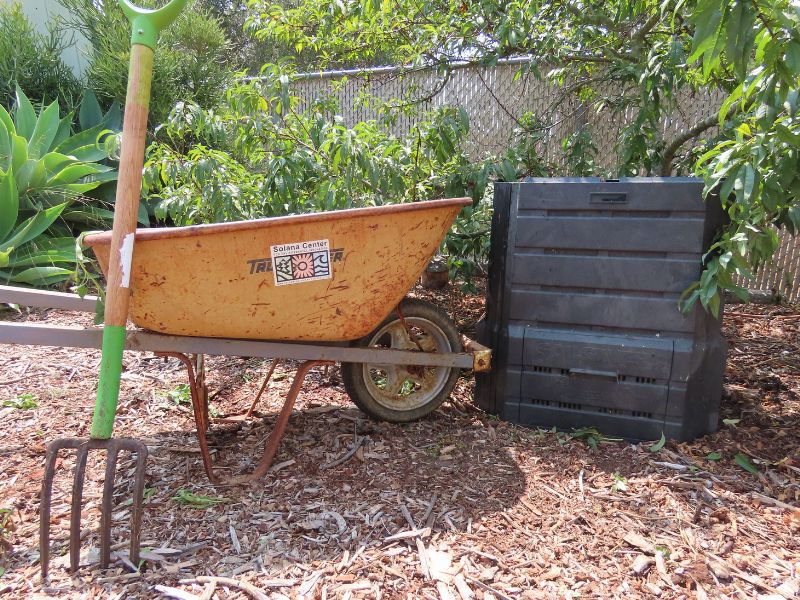From the Rotline: Where should I position my compost bin?

There are several things to keep in mind when choosing a location for your compost bin.
Sun or shade?
A worm bin is best placed in the shade. Worms do not fare well in hot temperatures or during a deluge of water during a rainstorm. By placing them in the shade, they will be more protected from the elements and less likely to dry out.
As for a regular compost bin, direct sunlight does not cause the compost pile to heat up. The microbes working inside the compost are what heats the pile up. With this in mind, keeping your compost bin in the shade will decrease water evaporation. It can also make for a more pleasant composting experience.
Dirt or cement?
It is best to place a compost bin on dirt because it allows beneficial insects to crawl into the bin. These insects naturally occur in a healthy compost pile and will speed up the decomposition process. To prevent larger animals from digging underneath, put hardware cloth or wire mesh underneath your compost bin. Please keep in mind that if a compost pile is set on cement, it is likely that the cement will be stained.
For a worm bin, it does not matter if it is placed on cement or on dirt. It is more important that the bin is in the shade. People often keep worm bins inside their garage, under their counter, or in a closet.
How close do I want my compost bin to the house?
Most people do not want to put their compost bin directly up against their house because they are worried about it smelling or attracting pests. If you are composting correctly, your bin will do neither. That said, if you are beginner composter, it may be best to keep it away from your house.
On the other hand, if you are an experienced composter, how close you put your bin to your house should instead be determined by hose length (if your bin is further away than your hose is long, you’ll be lugging buckets over to your pile!) and ease of use. In our Southern Californian climate, compost piles can dry out easily. (Note: your pile should be damp but not soggy. Click here for more info.)
How much room will my compost bin need?
If you plan on being an active composter and turning your compost pile, it is important that you have a space twice the size of your compost bin. This will allow you to turn and rebuild your bin directly next to where it was previously sitting.
Turning your bin increases air flow and allows the microbes to break down the material more quickly. If you plan on having a more passive bin, this is not necessary, though you probably want a little room around the bin so it can be accessed from all angles. Worm bins, on the other hand, do not need extra space.
Have more questions? Attend one of our composting workshops or contact us to learn more.
